P. L. Deshpande is known for his writings. But he was also an accomplished film and stage actor, scriptwriter, musician and film director. From 6th August 2021 onwards T.V. Studio building of the Film and Television Institute of India (FTII), Pune will be known as P. L. Deshpande T.V. Studio building. FTII is organising an event to inaugurate P. L. Deshpande TV building and unveiling of P. L. Deshpande mural. The occasion will be graced by Chief of the Army Staff General Manoj Naravane. Kartavya is immensely happy to treat our readers with P. L. Despande’s unpublished speech which he delivered on 2nd November 1979, at the 16th convocation ceremony of FTII. During the convocation ceremony R. K. Laxman, President of FTII society was also present. Mrs. Sunitabai Deshpande’s (P. L. Deshpande’s wife) nephew Dinesh Thakur & National Film Archives of India, Pune (NFAI) Director Prakash Magdum, made this speech available to us.
Friends,
I had a very comfortable feeling that people had long forgotten my association with the Film World, until your Director invited me to perform this very pleasant duty. I do not know if he has done correct casting in selecting me as a performer on this occasion. It is nearly a quarter of a century since I withdrew most willingly from the film world. I withdrew myself at a time when I was faring pretty well in the Marathi Bazar. On an average, I was making a little more than a college teacher of those days and a little less than my favourite paan wallah round the corner. I used to write, what I then thought were screenplays. I used to act and I used to direct music and I even ended up in Directing a Marathi film. I did everything that a performer was called upon to do in those days. I have even a painful recollection of having been asked, as a humourist, to keep the heroine's real mother in good humour for a couple of hours as the day's shooting had to be extended beyond the stipulated time. Looking back at my film career, I feel prouder not so much for being in it but for having left it. I can in all humility count myself as one of those very few prudent persons who have obliged the fields of their activity more by their absence than presence. Believe me, I am not trying to pose as a humble man; far from it. As an ex-film-man and a present film-viewer rather an irregular one though- I might soon sound like an old schoolmaster conducting a lesson-perhaps the last one you will be facing in these precincts. Neither have I come here to show you my prowess as a humorist; certainly not in the presence of one of the greatest ones is not only in our country but in the modern world, who is sitting here by my side and has made me feel most uncomfortable from the moment I sat on this chair. I mean the President of this Society, Shri R. K. Laxman, whose still cartoons show a greater movement than many of our so-called motion pictures and bring the viewer nearer truth and beauty.
Truth and beauty, Yes. That is what the Film Producers in whose contact I came in those days wanted me to remain away from. They wanted me to separate myself from whatever I was and supply them with what they thought had 'the public demand' - 'Public demand'. - the one expression which I have never been able to understand. I soon realised that they were playing a double role. What they really wanted of me as a writer or a performer was something which ultimately would result in filling their cash boxes to the brim. None could ever determine the height of these boxes. On the other hand, in their public speeches or interviews they were shedding crocodile tears for their inability to give real artistic pieces because, to use that nasty word again, the public demand was different. In truth, the film to them was just another commodity, like any other in the market. Speaking of a Distributor turned Producer-cum-Studio-owner, a very senior actor of those days said, 'If Mr. X comes to know that there is more money in selling wood for funeral pyres than producing pictures he would rather stock his Studios with logs of wood for cremation than produce films and kick us all out of here.'
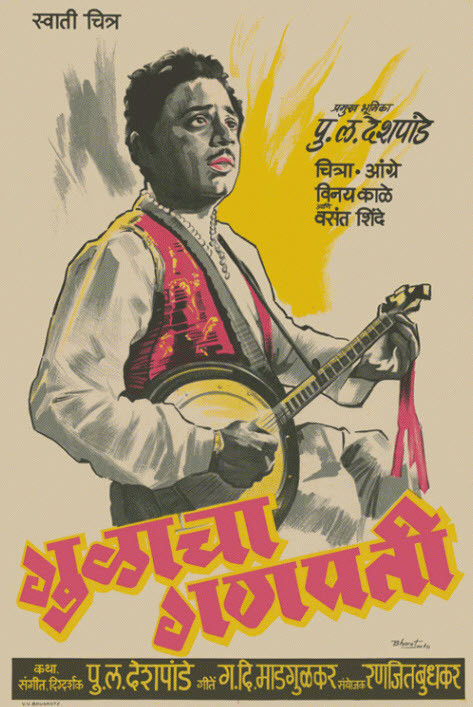 Harsh words, my friends, but not quite untrue. I even heard a producer say that he had backed so much money on a certain actress who he thought was going to be a sure win. The jargon of the racecourses and the gambling dens had started creeping in a land where dreamers of a different kind gather. I know that it is always the man who pays the piper calls the tune. Looking occasionally at the TV screen on Sunday evenings I get a painful feeling that the rule is operating in a much more disastrous manner today. It operates in the film world because it operates in every walk of our private and public life. There is no denying the fact the manufacturers of goods ranging from the nuclear weapons to various kinds of toothpaste and whatnot are using all possible tricks in converting nations and individuals into buyers. Your status in society is determined by your capacity to buy.
Harsh words, my friends, but not quite untrue. I even heard a producer say that he had backed so much money on a certain actress who he thought was going to be a sure win. The jargon of the racecourses and the gambling dens had started creeping in a land where dreamers of a different kind gather. I know that it is always the man who pays the piper calls the tune. Looking occasionally at the TV screen on Sunday evenings I get a painful feeling that the rule is operating in a much more disastrous manner today. It operates in the film world because it operates in every walk of our private and public life. There is no denying the fact the manufacturers of goods ranging from the nuclear weapons to various kinds of toothpaste and whatnot are using all possible tricks in converting nations and individuals into buyers. Your status in society is determined by your capacity to buy.
It seems to me that we have all come to accept the fact that as in love and war everything is fair in trade also. And just as the manufacturers of the weapons of largescale destruction do not bother about the value of human life or our fundamental right to exist, the speculators who have entered the world of film art with bags of money to invest are least worried about the serious loss of human values. As in any other trade, whatever brings in larger and larger profits is good enough for the film trade also. They are the least. disturbed by the impact this medium has on untutored and innocent minds. What do I find, these days when I enter some friend's house? His four-year-old son pointing a toy gun at me and shouting 'Hands up' and my friend's wife or daughter wanting me to tell her which film hero he is imitating. I fail in this viva voce.
"Sell" seems to be the only watchword in our film industry. So long as blind faith and superstitions sell in this country, sell them. Create new Gods or to be sure create new Goddesses, invest them with all kinds of powers, invent new miracles and you have a large and an easily qullible population living right from the lavishly furnished flats down to the worst possible slums to buy the stuff even at the black market rate outside the cinema halls. I was shocked to read an interview in a film magazine given by a Professor who has also been writing screenplays and dialogues that he had written some dirty dialogues with double meanings just to show a successful film comedian-writer-producer that he too can match him in vulgarity. So, sell vulgarity, make beautiful sex as ugly as possible and sell it; sell violence; sell dopes of escapes to our masses to make them forget their daily drudgeries of life and let them not know that most of their miseries are man-made. In short, sell everything that brings in enormous amounts of money. Elevate the anti-social to the position of a hero in the last reel, when everyone has seen enough of blood and indiscriminate fighting and shooting, and make him die in the end of the lap of his long lost mother or sometimes for a change let the mother die on the lap of this hero, let the dying one jerk the last tear from the eyes of the audience with a pseudo-philosophical or poetical line and be sure that the spectators come again to witness the fights and blood-shedding. Let there be a fair amount of running after each other done by the hero and the heroine-preferably in the Kashmir Valley, with Lata Mangeshkar and Rafi singing for them to buck them up. I have yet to meet a man or a woman in real life who can sing while running so fast or even for the matter of that while rolling on a lawn. I do not know why they don't sit at a place and really finish the job. This musical hide and seek has almost become a ritual. Why even the dialogues are ritualistic. A filmy bhajan is a ritual and cabaret dance too is a ritual. The chase in the last real is a ritual. And we as a people are so very fond of rituals that unless you have all these rituals bundled together in a feature film that is not a real 'Saneema' for our people. Thanks to the untiring efforts of our film producers and all the others who as actors, actresses, screenplay writers, songwriters and publicity experts, share the booty with them most of what passes for an Indian film today is just this and nothing more. I am not saying all this to show my moral indignation or anything of that kind. Far from it. The immorality lies not so much in the exposed physical contours of a Caberet dancer as in the basic speculative motive that is at the root of producing a so-called feature film. These, as you all know, are the salient features of our feature films.
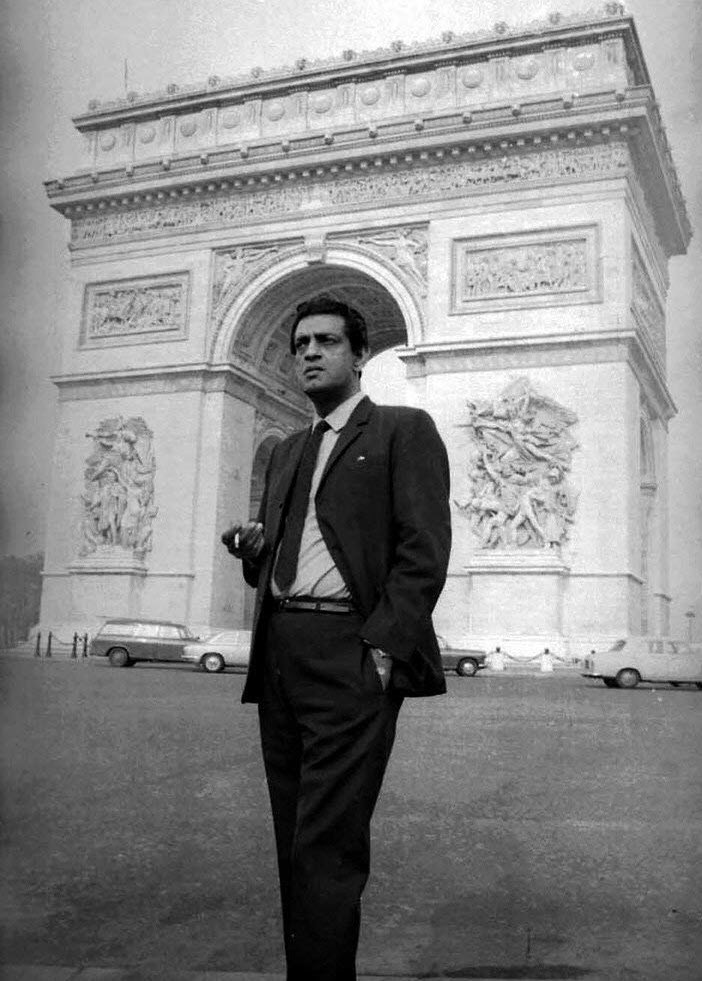 I certainly do not want to frighten you away, my young friends, from the journey which you are ready to undertake soon. I am sure that after all the training you had here and after seeing some of the masterpieces made by great film-makers like Chaplin, Fellini, Desica, and our own Satyajit Ray, Ritwik Ghatak, Mrinal Sen, Shyam Benegal, Girish Karnad, B.V.Karanth, what goes under the name of Cinema or a feature film must be causing a concern to you also. It is refreshing to find that even in some of our commercial feature films there are a few Directors like my friend Shri Hrishikesh Mukherji who have refrained from stooping so low and have yet met with good success. It is not necessary to be cheap to be popular. The old Prabhat and New Theatres films were quite popular; yet no one could accuse them of being cheap and vulgar.
I certainly do not want to frighten you away, my young friends, from the journey which you are ready to undertake soon. I am sure that after all the training you had here and after seeing some of the masterpieces made by great film-makers like Chaplin, Fellini, Desica, and our own Satyajit Ray, Ritwik Ghatak, Mrinal Sen, Shyam Benegal, Girish Karnad, B.V.Karanth, what goes under the name of Cinema or a feature film must be causing a concern to you also. It is refreshing to find that even in some of our commercial feature films there are a few Directors like my friend Shri Hrishikesh Mukherji who have refrained from stooping so low and have yet met with good success. It is not necessary to be cheap to be popular. The old Prabhat and New Theatres films were quite popular; yet no one could accuse them of being cheap and vulgar.
Let me also tell you at this juncture that I am not one of those who are in a perpetual state of mourning for the great film-makers of the past, who are no more. Offer your sincerest pranams to them and forget about them. The world does not belong to them anymore. We Indians are always busy building up the past and forgetting the present. There are a few creations no doubt which can describe as all-time great. You must have seen such excellent works of film art. There is some unknown element in art which transcends the barriers of time and distance. We call them classics. But, let us not forget that these classics were modern in their own times; almost all great artists who created them had to suffer at the hands of people who cling fast to what they think are artistic traditions. To many, tradition is just repetition. (Bharateeya Sanskriti, Bharat Kee Sannariyan, Patidev, Khandaan ki ijjat etc.) No one who wanted to be true to himself and his own experiences as artist could escape the struggle against the people who are averse to change and are happy clinging to cliches and platitudes.
Your task is not going to be an easy one in a world where glossiness is mistaken for beauty, tomfoolery is accepted as humour, sentimentalism is taken for emotion, outdated customs for cultural traditions and goondaism for bravery. The impression in the mind of an average Indian about the film world is akin to his idea of paradise. A world of glitter and glamour. A world of easy money. A 'five-star' life if I may say so. The late Guru Dutt and Hrishida have depicted these misconceptions in their delightful films, like Kagaz Ke Phool and Guddi.
Like that word public demand, I have yet not been able to grasp the correct connotation of this word 'glamour' too. I have a shrewd suspicion that this thing called glamour has more to do with the unimaginable wealth which many of our successful stars and superstars are supposed to be amassing rather than their physical attraction or sexual bewitchment. The glossy film magazines which give publicity to their lavish manner of living and spending have created a kind of a feudal Prince or a Princess image in the minds of the poor people in our country. The youth knows full well that most of the so-called 'hits' are flukes. Looking at the meteoric rise and fall of some of the actors and actresses, the general feeling in the minds of our young man and woman is that success in this land is hundred times more due to luck than merit, which also must be contributing to this idea of glamour. Good acting has, at all, very little to do with glamour. Helen Hayes is perhaps one of the most sensitive actresses in the world. What kind of glamour was there about her. There is hardly any glamour attached to artists in the other fields of art - poets, novelists, singers, good dancers, playwrights. Don't they create joy in life? Don't they entertain? Was there a greater entertainer than Charlie Chaplin? It is the quality of entertainment and even the quality of popularity that matters.
The challenge before the film-makers, who are aware of its potentialities as medium of entertainment is that of bringing about a change in the basic conception of entertainment itself; a change from the world of glamour, pseudo-romanticism, pseudo-progressivism as well, from the sham that is dished out in the name of our rich cultural heritage etc., to the world of truth, beauty and joy. Making people aware of the realities of life by either exposing the contradiction in the behaviour of our tall and mighty through good humour, or with tragedies which are not merely sob stuff. Let not humour be devoid of gentle wisdom nor the expression of love with dignity.
If you really want to be true to the artist within you leave worrying about fame, recognition, Oscars etc. Fame like hospitality has a strange habit of pursuing you when you do not need it.
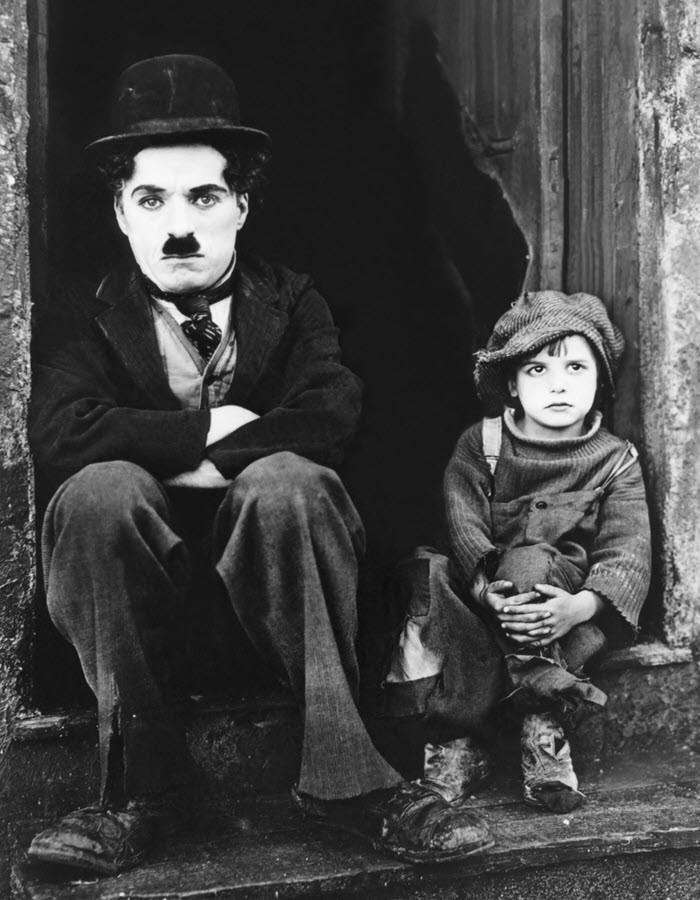 I cannot resist quoting a passage from a letter written to Charlie Chaplin, by Mr. Roger Ferdinand, the then President of the Society of authors and Dramatists in Paris. This was written when Chaplin was elevated to the rank of the officer of the Legion of Honour by the French Government. Writing about Chaplin's fame, Mr. Ferdinand says,
I cannot resist quoting a passage from a letter written to Charlie Chaplin, by Mr. Roger Ferdinand, the then President of the Society of authors and Dramatists in Paris. This was written when Chaplin was elevated to the rank of the officer of the Legion of Honour by the French Government. Writing about Chaplin's fame, Mr. Ferdinand says,
'In truth the real fame is never usurped; It only has a sense, a value and duration when it is turned to a good cause. And your victory is in the fact that you have human generosity and spontaneity that are not inhibited by rules or cleverness but stem from your own sufferings, your joys, hopes and disappointments; all that is understood by those who suffer beyond their strength and ask for pity and who constantly hope to be comforted to be made to forget for a moment by that laughter which does not pretend to cure but to console.
Ultimately, I believe that it all depends on what you really love. If you really love your people and really care for bringing a little sunshine in their clouded life, if you really feel ashamed of making monkeys out of them by doing monkey business as most of our politicians are doing today, you will shun the path of cashing on peoples' ignorance, their blind faith, their fatalistic outlook, their mental and physical starvation. Our innocent illiterate masses are duped into believing that whatever goes on the silver screen is God's truth. The way many of our politicians are duping people into believing that whatever they are doing is only in the interest of the people, including the ceremonial shaving off of the beard or for the matter of that putting the men of rare wisdom like Jayaprakash Narayan behind the bars and later on placing a sandalwood stick on his funeral pyre. I need not tell how our clever film-wallas have given a new lease of life even to some unknown Goddesses and how some of our antisocials have made use of the glamour which these gods and goddesses have got, and have erected temples in their names and have made quick money out of it.
It is here that the Government, if it really wants to improve the state of affairs in the modern Indian film production, can provide the real good creative artists with facilities they need most. I do not want to suggest the tightening up of the rules of the Board of Film Censors. The Indian Penal Code has not been able to prevent crime. It is the basic mentality that needs change. The false notion about cinema has to be driven away from peoples minds only through proper artistic efforts. The only way to do away with bad coins is to make people aware of what good coins are. You must have realised that the best films are based on stories written by literary artists of great merit. Let us not forget the share of Sharad Babu in the New Theatre's success. Most of the pictures made by modern Directors ranging from Satyajit Ray to young B.V.Karanth are based on excellent short stories and novels written by eminent writers. Not all of them can lead to making a film. But there are excellent short stories written by good writers in almost every Indian language which are film-worthy. I could list about a hundred of them from Marathi itself. A crop of writers has sprung in the Indian languages who have most artistically brought the hitherto unknown joys and sorrows of people living in our rural and tribal areas. Why not encourage young artists and directors to produce 60 to 90 minutes productions based on these stories, on 16mm films. In addition to financing such films the Governments both at the Central and State level should build hundreds of simple structures and use them as Cinema Houses for the projection of these films. TV can make ample use of these films. Let the people know the strength of this medium in entertainment and enlightenment. Let some of our delightful folk tales be picturised. You have a vast treasure of wit and wisdom there. It is real organic material and not synthetic as most of our film stories go.
Give a shape and a form to these beautiful stories which will make them aware of the real joys and sorrows that life offers to all of us in hundred different ways. Present them simply and intelligibly. Please don't, in the name of art and experiment, be vague or non-communicative. Let your picture convey to them the emotion and the incidents in a straight and a simple manner. I don't understand a word of Kannada but I enjoyed every moment and was touched by the deep sorrow in Karnad's Kadu or Karanth's Chomana Dudi. It is only when the story writer, the Director, the Cameraman, the Actors and the Actresses play together in tune like the various instrumentalists in a symphony orchestra that you get a good film made. And it is here that the question of training and acquainting the future filmmakers with different aspects of filmmaking comes in.
We often say that the times have changed. Times do not change of their own accord. It is the artist, the philosopher, the scientist, the painter, the sculptor, the musician, the King in the old days and the politician in the modern times who individually and collectively bring about this change, in the lives of the people. It is the responsibility of an artist to be aware of the changing times and give a proper expression to them by keeping a vigilant watch on such times and on himself in art. This training period never comes to an end. It is true that artists are born and not made. But the mere birthmark is not enough. All born artists who have made a mark in art are also gifted with the faculty of self-training. Liking for an art, therefore, must never be mistaken for the gift of creation. It is a conscious effort. One has to master the craft also. An early success as a child artist has more often than not resulted in his or her total failure as a grown-up artist for want of proper training. We all of us in art suffer from a kind of Narcissus complex. It is here that you need someone whom you respect and love to pull your ears and show you your right place; good critics of art can do this job. But that too is a very rare community. Not only the artists but also the teachers in such institute need refresh/courses from time to time. There should be a constant re-examination of our teaching methods.
This Institution has a special responsibility. The student here is taught to handle a medium which has tremendous potentialities to shape and change society for the better. The Government is spending a fair amount of money for running this Institute, though much more is needed for its further development. The teachers here should also be provided with such freedom and facilities that they should have the satisfaction of having sent their students out in the world with the fullest confidence. TV should make the best use of students who get qualified from here. Given such opportunities, I am sure, our young rectors, actors, actresses, musicians, writers and technicians will positively change the falsely glittering face of the present speculation market which goes in the name of Film Industry and make our film productions shine in their natural and legitimate glory.
Friends, I know you must be leaving this Institute with mixed feelings. All parting in life is sad. I am sure, you will be carrying with you something which will prove worthwhile in your careers as future Filmmakers of India. I would like to request you to have a deep feeling of love, respect for your viewers and a genuine desire to give them a feeling of enrichment through your art. Make a simple approach to them through your productions. I am sure, you will never fail to win their hearts which is far more precious than winning anything else. You are about to start on a new and an exiciting journey, I wish you bon voyage.
It was very kind of your Director to have invited me to give you my best wishes. That is all that I can give you. I know your Institute has access to a wonderful Film Archive. But, I never knew that Mr. Nair has also maintained a list of persons who were once associated with filmmaking and who like me have only a very little archival value, if any. I must also thank your Chairman, your President, the members of your staff and you ladies and gentlemen for giving me a patient hearing.
- P. L. Deshpande
Tags: Special P L Deshpande FTII Film Cinema Convocation Speech NFAI Prakash Magdum Load More Tags

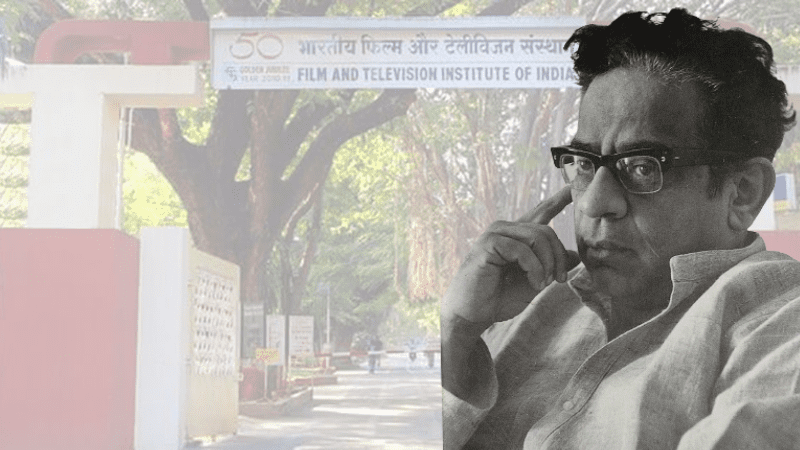
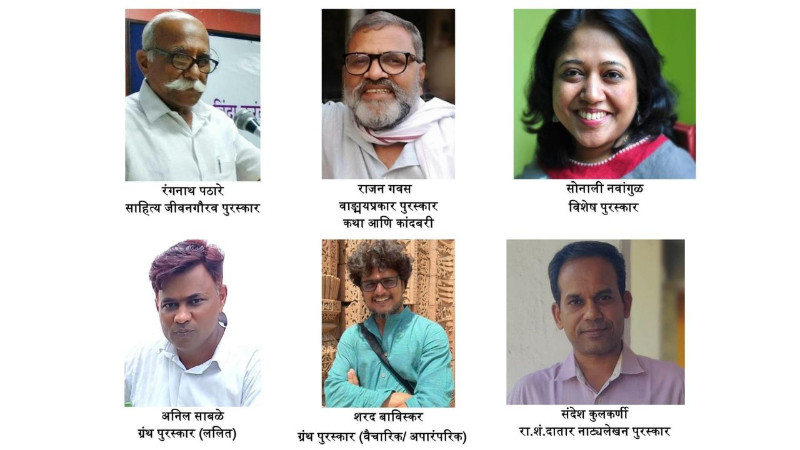
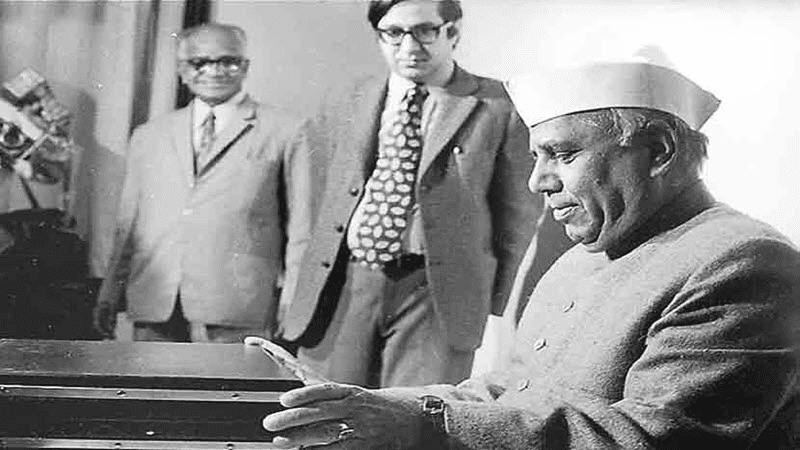
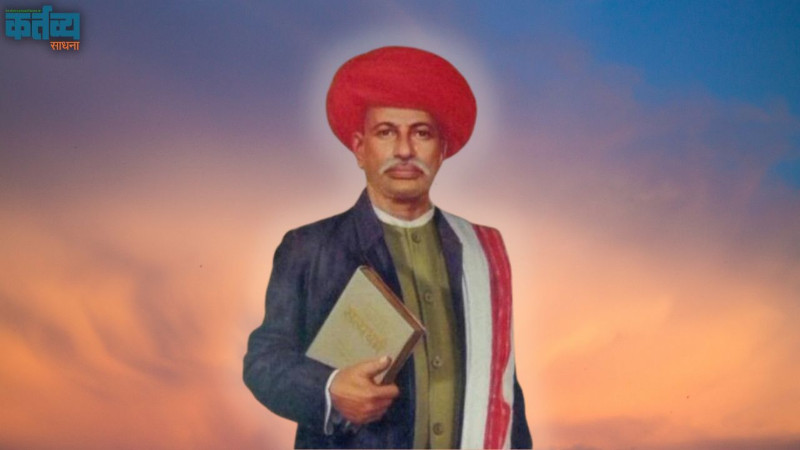
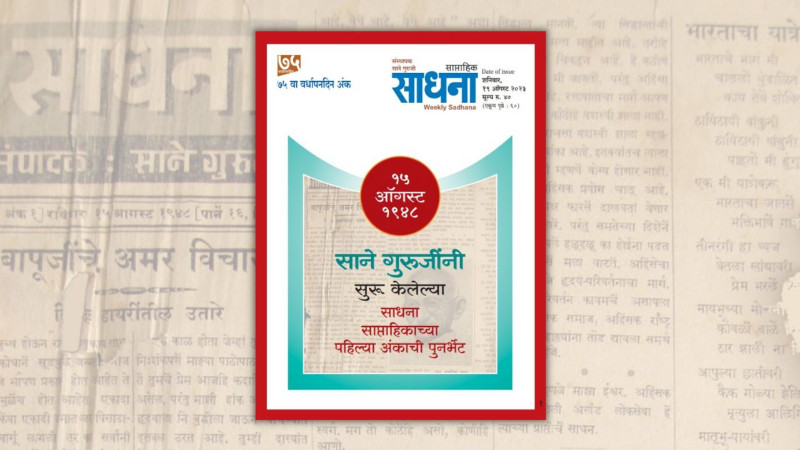

























Add Comment